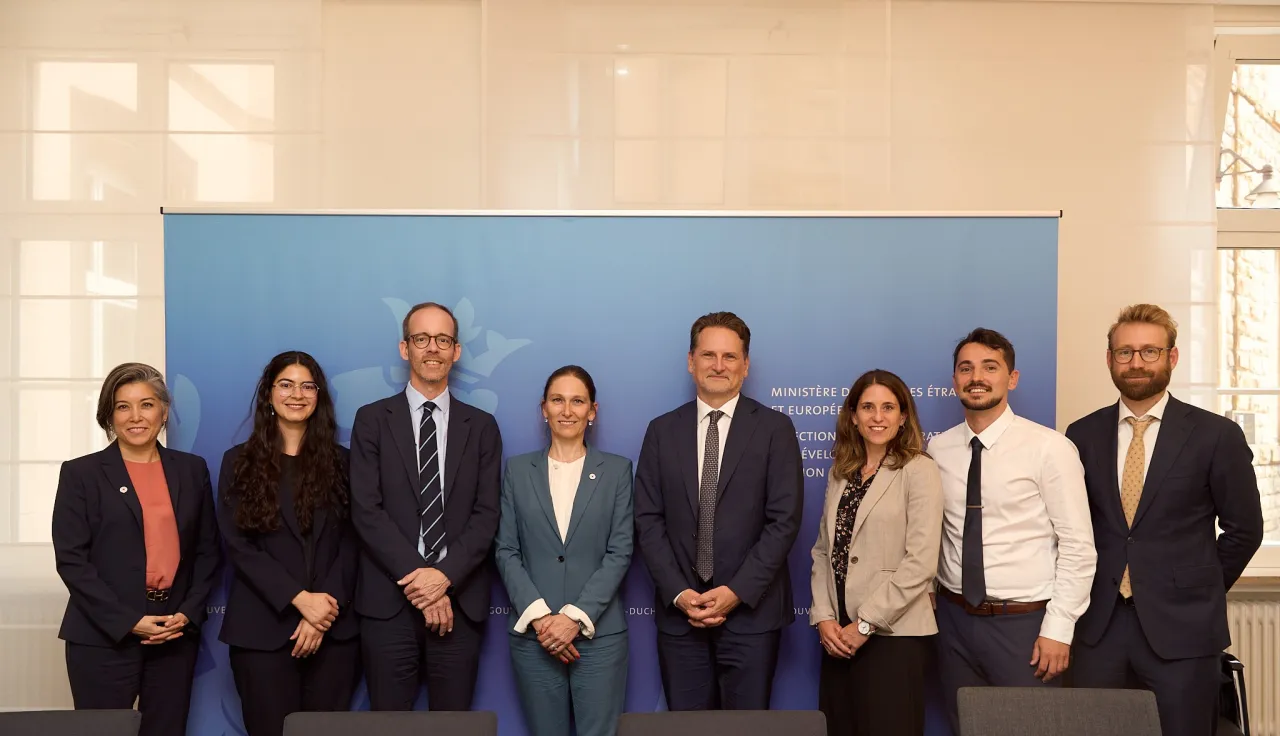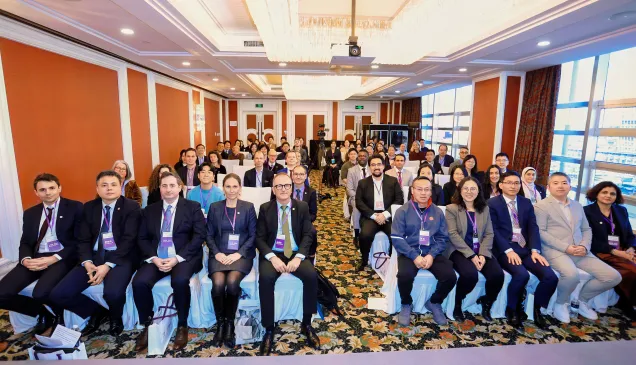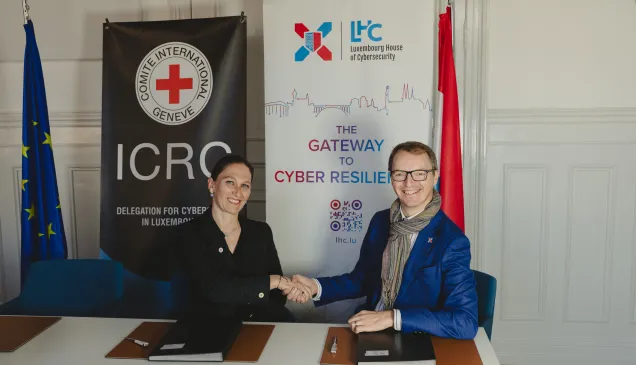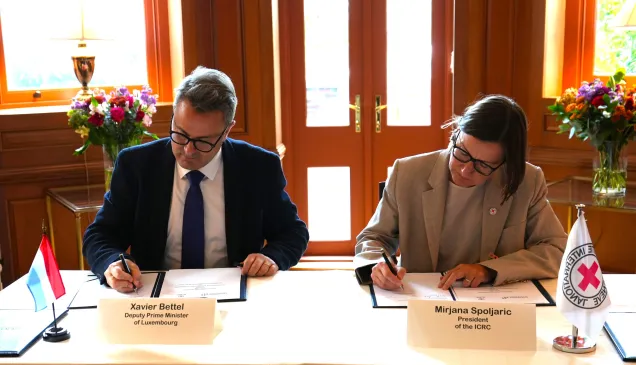Luxembourg: ICRC Director-General’s visit reflects the long-standing strategic partnership with Luxembourg

From 8 to 9 July, the Director-General of the International Committee of the Red Cross (ICRC), Pierre Krähenbühl, visited Luxembourg for the Annual Consultations on the Strategic Partnership with the Luxembourgish MFA and participated in a series of high-level engagements. Amidst proliferating and prolonged conflicts and the growing impact of the use of digital technologies in conflict situations on civilian populations, the strong support from the Grand-Duchy of Luxembourg for the ICRC’s field operations and for its Delegation for Cyberspace and Global Cyber Hub is critical and highly valued.
During the two day visit, Krähenbühl met with Deputy Prime Minister, Minister for Foreign Affairs and Foreign Trade and Minister for Development Cooperation and Humanitarian Affairs Xavier Bettel. Krähenbühl and the ICRC’s Head of Delegation in Luxembourg also met for the first time with the Grand-Duchy’s Parliament’s President Claude Wiseler, and Gusty Graas, President of the Parliament’s Foreign Affairs Committee. They also met with Michel Simonis, the Director General of the Luxembourg Red Cross and members of his leadership team.
In his remarks at the Annual Consultations with the MFA, Krähenbühl emphasized the importance of States continuing to uphold international humanitarian law (IHL) at a time when proliferation and long duration of armed conflicts lead to dire humanitarian consequences and the saturation of the international humanitarian aid system.
Krähenbühl also applauded the strong collaboration between the ICRC and Luxembourg on IHL files, in particular Luxembourg’s co-chairmanship of the information and communications technology (ICT) workstream of the Global Initiative on IHL, its participation in the Initiative’s workstreams on prevention and on national IHL committees. Krähenbühl emphasized the importance for European and NATO Member States to invest in IHL awareness, training and operationalization across government and armed forces, as they significantly increase their investments in defense and conflict preparedness, and highlighted the role countries such as Luxembourg can play. Based on the exchanges, the ICRC hopes to work closely with the Grand-Duchy on reinforcing the country’s operational efforts on IHL in the domestic sphere and as a member of the EU and NATO.
International humanitarian law is often described by all of us as universally ratified. But the real test of its universality does not lie in the courage to tell others how to apply it – it lies in whether one is willing to apply it to oneself, especially when one’s own interpretation of the law or national interests are challenged.
During his meeting with the Luxembourg Red Cross, a long-standing and trusted partner with a vital national role and active international presence, Krähenbühl expressed appreciation for the organization’s history and the strong mutual understanding that underpins our collaboration in Luxembourg and beyond. In these challenging times for humanitarians, amidst growing global conflict, our shared mission and partnership within the Movement are more relevant than ever.
In exchanges with Paperjam, a Luxembourgish media, the Director General highlighted Luxembourg’s ongoing support for the ICRC’s operations and the ICRC Delegation for Cyberspace and highlighted the importance of the strategic partnership with Luxembourg given the European context of increased spending on defense and cyber affairs and a decrease in funding for humanitarian aid.
While many countries have chosen to give priority to defence spending, Luxembourg is one of the countries maintaining stability in its funding. If we look at the per capita contribution, it’s one of the highest in the world.

He reiterated this message during a televised interview with RTL, a leading media group in Luxembourg, further underlining Luxembourg’s important role as a partner of the ICRC in promoting IHL and support on deepening the understanding and preparedness for humanitarian consequences brought by the use of digital technologies in armed conflict such as autonomous weapon systems.
With the accelerating integration of emerging technologies into armed conflict, a great concern to us is the blurring of lines of distinction between the military and civilian participation, and we realize that is true both for individuals and for corporations and companies.
The ICRC looks forward to continuing to strengthen its strategic partnerships in Luxembourg, all of which are squarely in support of carrying out lifesaving humanitarian action, including in cyberspace and the digital age, to ensure that our collective response to people in armed conflict’s needs remains effective, principled, and resilient in the face of the world’s complex and emerging challenges.



